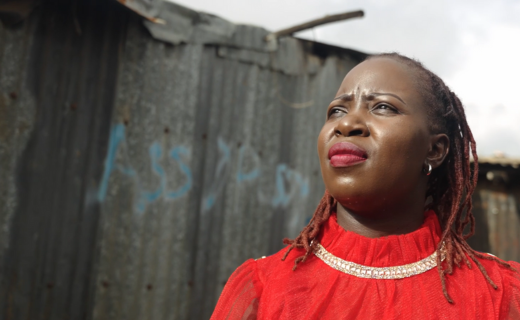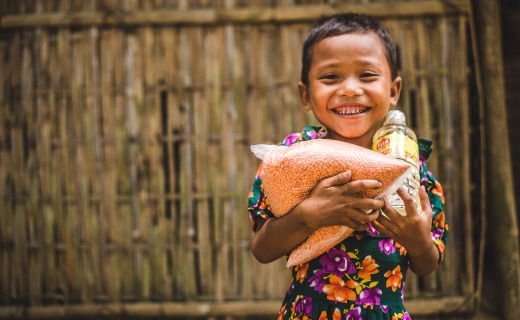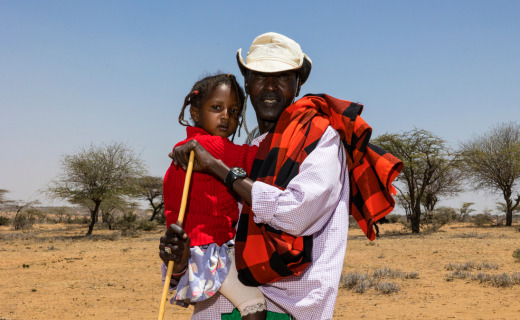Kenya
Capital City: Nairobi
Population: 48 million
Life expectancy: Male: 63.1 years, Female: 66.1 years
Population with improved drinking water: Urban: 81.6%, Rural: 56.8%
Population with improved sanitation: 30.1%
Percentage of children underweight: 11.2%
Literacy Rate: Male: 81.1%, Female: 74.9%
Child Labour: 26%
Religion: Christian 83% (Protestant 47.7%, Catholic 23.4%, other Christian 11.9%), Muslim 11.2%, Traditionalists 1.7%, other 1.6%, none 2.4%, unspecified 0.2% (2009)
Percentage living below the poverty line: 36.1%
A little bit of history
Kenya has been revered by many as the ‘cradle of humanity’ and is famous for its expansive game reserves, magnificent Rift Valley and the powerful Maasai Mara tribes. Kenya achieved its independence from Britain in 1963 and after years of violent unrest and corruption, multi-party politics was established in the early 1990s. The beginnings of economic recovery accompanied the landslide victory of President Mwai Kibaki in 2002, but just three years later the party splintered and a new opposition coalition was formed. Kibaki's re-election in December 2007 brought charges of vote rigging and violent unrest broke out. Power sharing negotiations eventually brought Odinga into the government in the restored position of prime minister.
How the country makes a living
For years Kenya has been hailed as the largest economy in East Africa, but a lack of infrastructure, corruption and an over reliance on a few primary agricultural goods has held development back. International financial lenders and donors remain important to Kenya's economic growth and development. Unemployment is extremely high at around 40%, with the majority of the population surviving as subsistence farmers and in informal sectors of the economy.
Challenges faced by children
Like much of Africa, HIV and AIDS have ravaged the country, with the children often bearing the greatest burden. It is estimated that Kenya has more than 2.4 million orphans, 47% of whom have lost their parents due to AIDS-related complications. Whilst infection rates are declining in urban areas, prevalence is increasing in many rural communities.
Compassion in Kenya
Compassion's work in Kenya began in 1980. More than 129,794 children participate in more than 418 child development centres.
What sponsored children learn in kenya
Project days in Kenya are generally held on Saturdays. During a typical project day, sponsored children will participate in activities such as:
9.00am Prayer and devotion time.
9.30am Spiritual lessons. Children sing songs and learn Bible stories.
10.30am Break time and snack. Children can play in a safe environment and develop friendships. A typical snack consists of a cup of porridge or tea, a slice of bread and portion of fruit, and in some cases an egg.
11.00am Social lessons. From conflict resolution to developing healthy self-esteem and a Godly character, children who often come from challenging home environments are taught social and personal skills.
12.00pm Lunch and social time. A typical lunch consists of rice or ugali, beef stew, bean stew or legumes, and green leafy vegetables such as kale or cabbage. Children who are in the HIV programme are given nutritional supplements to boost their immunity. The food gives children the ability to concentrate in class and enjoy active playtimes. During extremely difficult situations where food is unavailable, children come to the project with their siblings just for a meal. It’s the only place where they are able to eat something.
1.00pm Health lessons. Children are taught practical health and hygiene tips. Example topics include how to prevent malaria, HIV, and the prevention, recognition and response to child abuse.
2.00pm Letter writing and career planning. Older children work with project staff to identify their strengths and interests, setting realistic goals for their future.
Projects also offer a variety of extracurricular activities including an annual football competition, teen camps held during the holidays and talent days where children perform music, drama or poems. When they reach the age of 12, young people are involved in skills training, such as computer training, carpentry, motor vehicle repair, dressmaking, cooking, hairdressing, driving and life skills.





